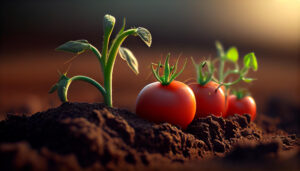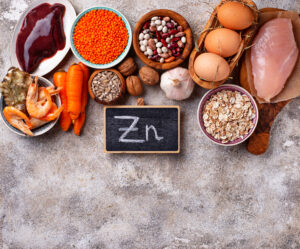Hydration needs can differ depending on individual health conditions, medications and activities; however, an easy and effective goal for beginning to meet this need would be drinking eight glasses of water every day.
Water is the optimal way to stay hydrated, but low-cal beverages such as milk and tea may also help. Caffeinated drinks and soda can lead to dehydration.
Dehydration
Dehydration occurs when you lose more fluids than you consume. Your body requires water for proper functioning, including eliminating waste and maintaining temperature regulation. Signs of dehydration include dark urine, dry mouth, weakness confusion or dizziness – so if these symptoms arise it’s vital that you hydrate quickly to restore health.
Your doctor may suggest drinking a low-sodium sports drink to restore lost electrolytes through sweating and diarrhea, however water, coffee, tea, milk or other low-sodium beverages will still provide ample hydration – but beware that many contain added sugar, salt, caffeine or artificial ingredients which could interfere with proper hydration balance.
Certain medical conditions and medications can increase your risk of dehydration. Diabetes and kidney disease require people to consume more fluid than the average person; people taking medication to treat high blood pressure, fever or seizures need even more water than average to stay hydrated; elderly are particularly prone to dehydration as their bodies slow down over time and they’re less likely to feel thirsty; people sick with vomiting or diarrhea require increased quantities of fluid intake as their fluid needs increase dramatically.
Electrolyte imbalance
Hydration is essential to many bodily processes, from controlling skin temperature to lubricating joints. Unfortunately, dehydration can have serious health ramifications – however hydration is manageable if drinking water with added electrolytes.
Everyone knows the advice to drink eight glasses of water daily, but this recommendation may not apply to everyone. How much fluid a person requires depends on climatic conditions and intensity/duration of exercise as well as medical conditions like diabetes or cystic fibrosis that impact fluid consumption needs.
Furthermore, it’s also crucial for an individual to consume an appropriate mix of fluids. Instead of turning to sports drinks with excessive sugar content for their fluid needs, which are high in calories, try switching it up by drinking liquids that contain minimal caloric intake such as tea, coffee or broth. Incorporating water-rich fruits and vegetables such as stews, chilis or smoothies for popsicles/slushies. Oral rehydration solutions like DripDrop ORS with their precise formulation of electrolytes may also prove helpful for this endeavor.
Blood pressure
Water is essential to many bodily functions, from maintaining body temperature to dissolving nutrients, flushing waste and lubricating joints. On average, adults need at least four to six cups of water daily depending on climate and activity level; sweaty athletes or those at higher altitudes need more to compensate for water loss during exercise or at high altitudes; those living with medical conditions such as fever, vomiting and diarrhea may have additional fluid needs than others.
Research funded by the National Institutes of Health suggests that drinking enough fluids can help to protect against chronic diseases, such as heart disease and diabetes. Hydrating beverages include fruit juices, tea/coffee/non-alcoholic beer/seltzer water (without added sugar) as well as stews/chilis for maximum hydration benefits. Just make sure not to consume excessive caffeine, sugar or salt which could contribute to excess fluid loss – aim to hydrate before feeling thirsty – particularly before exercise – since urine color cannot accurately depict levels of dehydration!
Body temperature
Water should be consumed throughout the day to replace fluid losses through sweating, breathing and using the bathroom. When engaging in physical activities or in hot conditions, additional hydration is often necessary in order to compensate.
Staying hydrated can also benefit your heart. Staying hydrated allows blood vessels to move more freely through them and can reduce your risk of heart attack or stroke. Furthermore, keeping joints lubricated helps ease friction that causes joint pain.
Your body’s water balance can be affected by various factors, including climate conditions, clothing worn and exercise intensity and duration. Diuretics medications and medical conditions such as heartburn may also alter this equilibrium. Thirst isn’t always an accurate gauge of hydration either – instead use urine color as an indicator: light colored urine indicates adequate hydration while darker-colored urine indicates you may be losing more fluid than you’re drinking in.
Joints
Hydration is essential to our bodies, yet many don’t realize its significance for joint pain relief. Water plays an integral part in producing synovial fluid which cushions joints and keeps cartilage soft and flexible; when we are dehydrated it causes stiffening due to increased friction at joint ends causing discomfort and stiffening in cartilage layers.
Additionally, drinking enough fluid during high-impact exercises such as running or other athletic pursuits is vitally important to protect joints from excessive impact by acting as a shock absorber and helping absorb extra forces on them. Furthermore, water helps prevent muscle cramps which are common among exercisers who fail to consume enough hydration.
Dehydration causes blood volume to decline, creating an adverse chain of events that leads to joint and muscle issues. To avoid this situation, individuals should drink plenty of water throughout the day by replacing sugary beverages with pure H20; keeping a water bottle handy would make things simpler; they could add fruit slices for flavor as an easy way to stay hydrated! They should also track their hydration to remain accountable.





